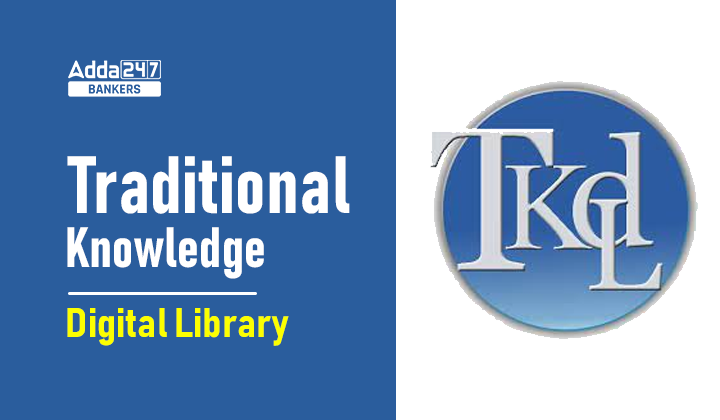The Traditional Knowledge Digital Library (TKDL) is a pioneering initiative of India, under the joint collaboration of the Council of Scientific and Industrial Research (CSIR) and the Ministry of AYUSH.
- It was established in 2001 to prevent exploitation and to protect Indian traditional knowledge at Patent Offices worldwide.
- The TKDL includes India’s rich traditional knowledge related to the systems of medicine from classical/ traditional books related to Ayurveda, Unani, Siddha and Sowa Rigpa as well as practices of Yoga.
- The information from the ancient texts of medicine and health existing in local languages such as Sanskrit, Hindi, Arabic, Persian, Urdu, Tamil, Bhoti, etc. have been digitized in five international languages, namely, English, French, German, Spanish and Japanese in the TKDL
database as prior art. - TKDL is the first of its kind prior art database globally, and has proven to be an effective deterrent against bio-piracy. While being recognized internationally as a unique effort, TKDL has set a benchmark in TK protection around the world, by demonstrating the advantages of proactive action and the power of strong deterrence.
Objectives of TKDL
Traditional Knowledge Digital Library was conceptualized to overcome the language and format barrier by systematically and scientifically converting and structuring the available contents of the ancient texts – currently focused on Indian Systems of Medicines (ISM)- into five international languages.
This is done with the help of information technology tools and an innovative classification system – Traditional Knowledge Resource Classification (TKRC). Widening Access of TKDL Database to Users besides Patent Offices.
The opening up of the TKDL database to users will be a new dawn for Indian Traditional Knowledge, with the following benefits:
• The step will help in integrating and co-opting traditional knowledge with current practices towards enhancing innovation and trade,
• It will facilitate wider adoption of Indian traditional medicines, while also propelling new manufacturers and innovators to gainfully build enterprises based on India’s valuable knowledge heritage,
• The TKDL can cater to a vast user base that would include businesses/companies, research institutions: public and private; educational institutions: educators & students; and others: ISM practitioners, knowledge holders, patentees and their legal representatives, and government, among several others,
• It will also inculcate thought and knowledge leadership through Bharatiya Gnana
Parampara, under the New Education Policy 2020.
Steps Taken to Protect Ancient and Traditional Knowledge of Indigenous Medicinal Systems
❖ As per the extant Government of India approvals in place, access to the Database is given to patent offices worldwide that have signed Non-Disclosure access agreements with the CSIR. Fourteen Patent Offices including the Indian Patent Office (Controller General of Patents, Designs & Trade Marks), have been granted access to the TKDL database. The CSIR-TKDL Unit also files third-party observations and pre-grant oppositions on patent applications related to Indian traditional knowledge based on the TKDL evidences.
❖ The defensive protection through TKDL has been effective in safeguarding Indian traditional knowledge from misappropriation and is considered a global benchmark. A total of 418885 formulations including 119269 in Ayurveda, 236399 in Unani, 54689 in Siddha, 4151 in Yoga and 4377 in Sowa Rigpa have been transcribed so far into the TKDL database (data as on March 25, 2022).
❖ As on March 25, 2022, 265 patent applications have been either withdrawn/deemed
withdrawn or amended or set aside on the basis of TKDL evidence thus protecting
Indian traditional knowledge.
❖ The Council of Scientific and Industrial Research (CSIR)-Traditional Knowledge
Digital Library Unit has signed a Non-Disclosure Agreement with the National
Biodiversity Authority for evaluating and identifying modalities for possible inclusion
of information from the People’s Biodiversity Register (PBR) into the TKDL database.
The Register is a tool for formal recording and maintenance of comprehensive
information on availability and knowledge of local biological resources, their medicinal
or any other use.
Other posts
Recent Posts
| Current Affairs April 2022 | |




 GA Capsule for SBI Clerk Mains 2025, Dow...
GA Capsule for SBI Clerk Mains 2025, Dow...
 The Hindu Review October 2022: Download ...
The Hindu Review October 2022: Download ...
 IBPS PO Apply Online 2025, Online Applic...
IBPS PO Apply Online 2025, Online Applic...


